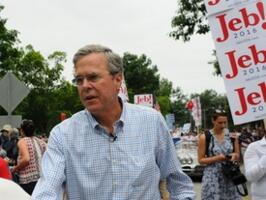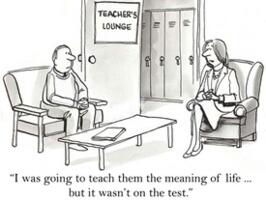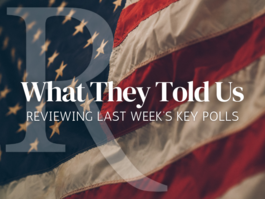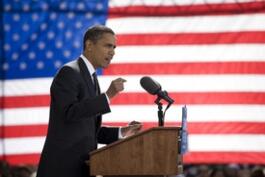Obama’s half answers bolster mullahs By Charles Hurt
You may not like ex-Vice President Dick Cheney and you may not miss former President George W. Bush but you have to give them credit. They did not do things halfway.

You may not like ex-Vice President Dick Cheney and you may not miss former President George W. Bush but you have to give them credit. They did not do things halfway.

Fourteen years after the September 11, 2001 attacks on the World Trade Center and the Pentagon, concern that the terrorists have the upper hand in the ongoing War on Terror remains near a record high.

The presidential fields on both sides are so much in flux that rumors of new candidates entering the race continue. For the Democrats, the whispers about Vice President Joe Biden making a late charge into the fray have become roars. Biden made a campaign-style appearance at a Labor Day rally in Pittsburgh and otherwise seems to be strongly considering a run as frontrunner Hillary Clinton’s polling has dipped significantly (though to us she remains the clear favorite for the Democratic nomination).

They remain in the lead for their respective party’s presidential nomination, but how do voters rate former Secretary of State Hillary Clinton and billionaire businessman Donald Trump head-to-head on specific issues facing the nation? Trump holds a double-digit lead in voter trust when it comes to the economy and immigration and is slightly ahead in the area of national security. Clinton holds small leads on social policy and the environment.

Democrats are more confident than Republicans that Jeb Bush will be next year’s GOP presidential candidate, perhaps in part because a lot of Republicans suspect Bush agrees more with Hillary Clinton than with the average voter in his own party.

After nearly eight years of the East Wing's politics of mope and complain, it's refreshing to see a presidential candidate's spouse who is always smiling.

I'm upset that the presidential candidates, all of them, rarely mention a huge problem: the quiet cancer that kills opportunity -- regulation. The accumulated burden of it is the reason that America is stuck in the slowest economic recovery since the Depression.
I understand why candidates don't talk about it: Regulation is boring. But it's important.

The Scholastic Aptitude Test (SAT) is set to be revamped soon following reports that scores across the country have fallen to troubling lows. But do poor SAT scores really mean poor students?

A federal judge has sent a Kentucky county clerk to jail for refusing to issue wedding licenses to gay couples despite a U.S. Supreme Court ruling in late June upholding the legality of same-sex marriage. The clerk insists that gay marriage violates her Christian beliefs.

I've seen this movie before. And for the last 25 years, I thought I'd never have to watch it again. But now it's playing, not in theaters, but all over mainstream media, with something like rave reviews from the president and his administration.

The refugee crisis in Europe is one of those human tragedies for which there are no real solutions, despite how many shrill voices in the media may denounce those who fail to come up with a solution.
Some options may be better than others, but there is nothing that can honestly be called a solution. Nevertheless many countries, including the United States, could do a lot better.

Former Comedy Central host Stephen Colbert will be taking over hosting duties on CBS-TV’s The Late Show tonight, but what do Americans think of David Letterman’s replacement?

Twenty-seven percent (27%) of Likely U.S. Voters now think the country is heading in the right direction, according to a new Rasmussen Reports national telephone survey for the week ending September 3.

More Americans than ever view Labor Day as it was intended - to honor working Americans - but few still regard it as one of the nation’s most important holidays.

These are tense times racially, and Americans don’t think President Obama and some other top officials are helping with their repeated criticism of the police.

If a pizza shop refused to sell pizza, everyone would say it was run by crazy people.
What does it say about the people who run the news media that they don't want to report news?

“The Donald” has moved even further ahead in the latest Trump Change survey.

Next week, as rumors swirl of his possible entry into the 2016 presidential race, Vice President Joe Biden will appear on liberal comedian Stephen Colbert's new late-night CBS show. The host is a professional clown. The VIP guest is a political clown with more baggage than the Kardashians during Paris fashion week.

Aside from the court-ordered dribbling out of Hillary Clinton's classified-material-filled emails, the big presidential campaign news of the summer has been the boom for Donald Trump in the race for the Republican nomination. Trump has risen from 3 percent in the polls (when he announced on June 16) to where he now stands at 26 percent -- 14 percent ahead of any other candidate.

Americans hoped the election of the first black president in 2008 would help heal the racial division that has plagued this country for much of its history, but nearly half of voters think just the opposite has occurred.